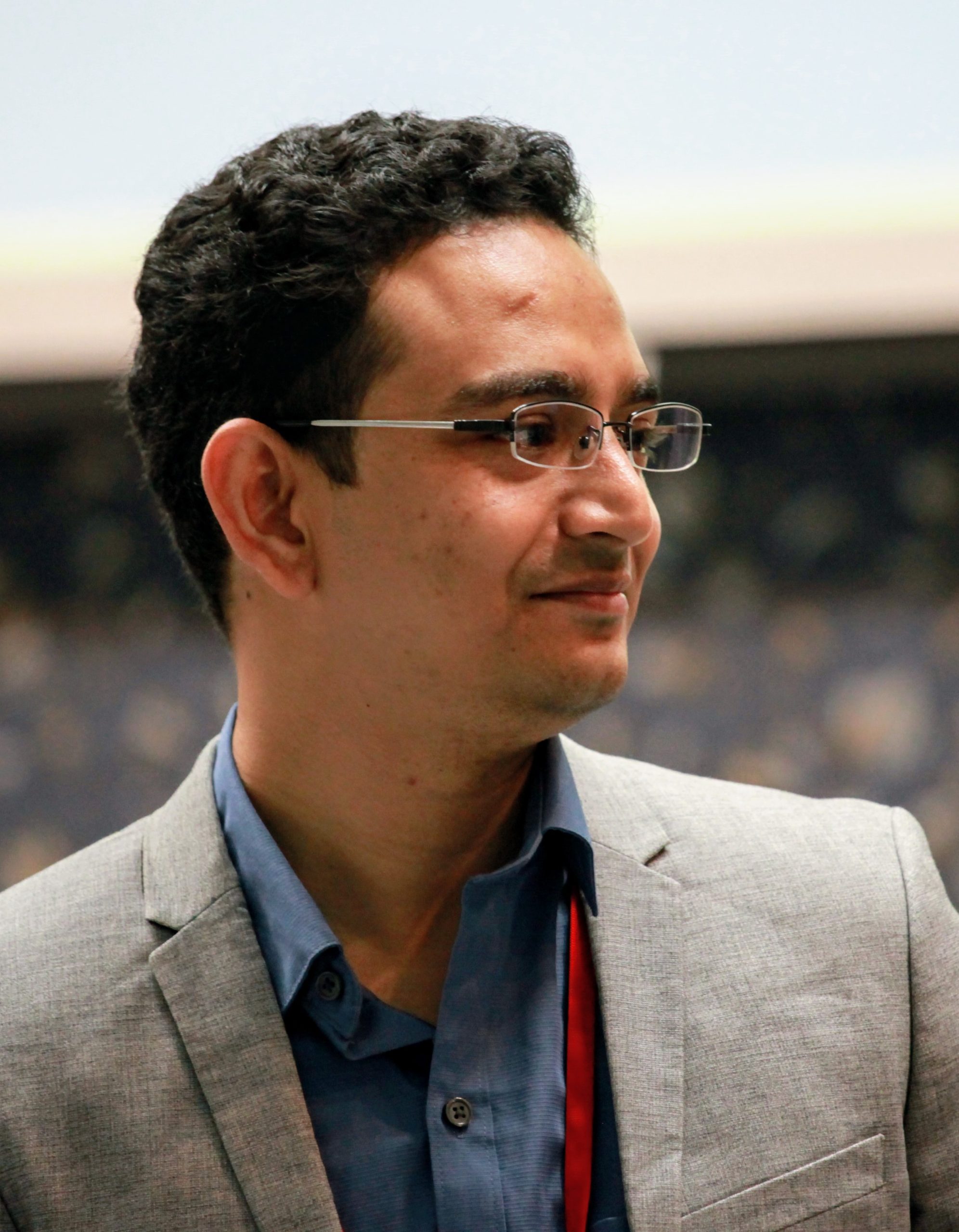Kaushal Kumar Bhagat, Indian Institute of Technology Kharagpur, India
 Dr. Kaushal Kumar Bhagat
Dr. Kaushal Kumar Bhagat is currently working as an assistant professor in the Advanced Technology Development Centre at the Indian Institute of Technology (IIT), Kharagpur, India. He received his Ph.D. from the National Taiwan Normal University in September 2016. He then served a two-year postdoctoral position at the Smart Learning Institute at Beijing Normal University. In 2015, Dr. Bhagat received NTNU International Outstanding Achievement Award. He was also awarded the 2017 IEEE TCLT Young Researcher award. In 2020, he received APSCE Early Career Researcher Award (ECRA) from the Asia-Pacific Society for Computers in Education. He was also awarded the 2022 Excellence in Distance Education Award (EDEA) by the Commonwealth of Learning (COL), Canada. He is an associate editor of the British Journal of Educational Technology (BJET), Regional Associate Editor (Asia) of the Journal of Learning for Development (JL4D), and editor-in-chief of Contemporary Educational Technology (CET). He is also an editorial board member of several reputed international journals. He is a consultant for international organizations like the Commonwealth of Learning, UNESCO, etc. His research area of interest includes augmented reality, virtual reality, game-based learning, online learning, and technology-enhanced learning.
Game On! Leveraging the Benefits of Game-Based Learning in the Digital Age
Abstract: In today’s digital age, game-based learning has become an increasingly popular way to engage students and enhance their learning experiences. Game-based learning leverages the engaging and immersive nature of games to create a fun and interactive learning environment, which can help students to develop critical thinking, problem-solving, and collaboration skills.
In this keynote presentation, we will explore the benefits of game-based learning and discuss how it can be used to meet the needs of today’s learners. We will discuss the importance of incorporating game-based learning into the classroom and explore some of the latest research on the effectiveness of this approach. We will also explore some fundamental design principles of successful game-based learning and highlight some of the best practices that educators can use to create engaging and effective games for their students. Finally, we will examine some of the challenges and limitations of game-based learning and discuss how educators can work to overcome these obstacles.
Overall, this keynote presentation will provide attendees with a comprehensive overview of game-based learning and its potential to transform education in the digital age. Whether you are an educator, a curriculum developer, or a game designer, this presentation will provide valuable insights into how you can leverage the benefits of game-based learning to create engaging and effective learning experiences.
Brendan Flanagan, Kyoto University, Japan
 Brendan Flanagan
Brendan Flanagan is an Associate Professor at the Center for Innovative Research and Education in Data Science, Institute for Liberal Arts and Sciences, and the Data Science Department at the Graduate School of Informatics, Kyoto University. His research interests include Learning Analytics, Educational Data Science, Computer Assisted Language Learning, and the Application of Blockchain in Education. He has also hosted educational data challenges at prominent international conferences for more than 5 years to promote educational data science research. He is currently the Principle Investigator of several government-funded research projects that investigate knowledge and learning process analysis, and explainable predictions by learning systems, and is also part of a Japanese Cabinet Office (NEDO) funded large research project into educational symbiotic AI systems.
Challenges and Opportunities of Educational Data Science for Reading Systems
Abstract: As educational systems are collecting an increasing amount of data on the learning behavior of students, its analysis has given rise to the fields of Educational Data Mining, and more recently Learning Analytics. As a result, educational AI that is constructed from and consumes learning behavior data has become more prevalent in learning systems and is fueling increased research attention in the field. While many datasets have been made public to promote research, important issues such as information privacy have also limited broader analysis and have resulted in data silos and hindered replication studies within the community. This talk will give an overview of educational data science focusing on reading systems and discuss important ongoing challenges including data analysis for niche learning contexts, data divide, and insights into methods for promoting collaboration through synthetic data and their possible limitations.
Daner Sun, Education University of Hong Kong, Hong Kong
 Dr Daner Sun
Dr Daner Sun is an assistant professor at the Department of Mathematics and Information Technology, the Education University of Hong Kong (EdUHK), Hong Kong. Her research interests are mobile learning, STEM education, and higher-order thinking in technology-supported learning. So far, Dr Sun has published more than 30 SSCI journal papers. She serves as the editor/co-editor for conference proceedings and journal special issues and acts as a reviewer in the community. Besides being the awardee of the APSCE Early Career Researcher Award (ECRA) 2022, she is also the awardee of Outstanding Performance in Research 2023, Outstanding Performance in Knowledge Transfer (Team) 2020, and Dean’s Research Output Prize 2021 in EdUHK.
Exploring the Evolution of Mobile Learning Environments
Abstract: The rapid advancement of technology and the changing landscape of education have led to significant changes in technology-enabled learning environments. This presentation will explore the impact of changing situations on mobile technology-enabled learning environments, with the speaker sharing insights as both a researcher and an instructor. The talk will cover the evolving distribution and adjustment of components in these environments, as well as changes in pedagogy before, during, and after the Covid-19 pandemic. Additionally, the speaker will highlight the emerging dominance of new technologies in Hong Kong and worldwide, and propose future research directions for mobile learning.
 Dr. Kaushal Kumar Bhagat is currently working as an assistant professor in the Advanced Technology Development Centre at the Indian Institute of Technology (IIT), Kharagpur, India. He received his Ph.D. from the National Taiwan Normal University in September 2016. He then served a two-year postdoctoral position at the Smart Learning Institute at Beijing Normal University. In 2015, Dr. Bhagat received NTNU International Outstanding Achievement Award. He was also awarded the 2017 IEEE TCLT Young Researcher award. In 2020, he received APSCE Early Career Researcher Award (ECRA) from the Asia-Pacific Society for Computers in Education. He was also awarded the 2022 Excellence in Distance Education Award (EDEA) by the Commonwealth of Learning (COL), Canada. He is an associate editor of the British Journal of Educational Technology (BJET), Regional Associate Editor (Asia) of the Journal of Learning for Development (JL4D), and editor-in-chief of Contemporary Educational Technology (CET). He is also an editorial board member of several reputed international journals. He is a consultant for international organizations like the Commonwealth of Learning, UNESCO, etc. His research area of interest includes augmented reality, virtual reality, game-based learning, online learning, and technology-enhanced learning.
Dr. Kaushal Kumar Bhagat is currently working as an assistant professor in the Advanced Technology Development Centre at the Indian Institute of Technology (IIT), Kharagpur, India. He received his Ph.D. from the National Taiwan Normal University in September 2016. He then served a two-year postdoctoral position at the Smart Learning Institute at Beijing Normal University. In 2015, Dr. Bhagat received NTNU International Outstanding Achievement Award. He was also awarded the 2017 IEEE TCLT Young Researcher award. In 2020, he received APSCE Early Career Researcher Award (ECRA) from the Asia-Pacific Society for Computers in Education. He was also awarded the 2022 Excellence in Distance Education Award (EDEA) by the Commonwealth of Learning (COL), Canada. He is an associate editor of the British Journal of Educational Technology (BJET), Regional Associate Editor (Asia) of the Journal of Learning for Development (JL4D), and editor-in-chief of Contemporary Educational Technology (CET). He is also an editorial board member of several reputed international journals. He is a consultant for international organizations like the Commonwealth of Learning, UNESCO, etc. His research area of interest includes augmented reality, virtual reality, game-based learning, online learning, and technology-enhanced learning.
 Brendan Flanagan is an Associate Professor at the Center for Innovative Research and Education in Data Science, Institute for Liberal Arts and Sciences, and the Data Science Department at the Graduate School of Informatics, Kyoto University. His research interests include Learning Analytics, Educational Data Science, Computer Assisted Language Learning, and the Application of Blockchain in Education. He has also hosted educational data challenges at prominent international conferences for more than 5 years to promote educational data science research. He is currently the Principle Investigator of several government-funded research projects that investigate knowledge and learning process analysis, and explainable predictions by learning systems, and is also part of a Japanese Cabinet Office (NEDO) funded large research project into educational symbiotic AI systems.
Brendan Flanagan is an Associate Professor at the Center for Innovative Research and Education in Data Science, Institute for Liberal Arts and Sciences, and the Data Science Department at the Graduate School of Informatics, Kyoto University. His research interests include Learning Analytics, Educational Data Science, Computer Assisted Language Learning, and the Application of Blockchain in Education. He has also hosted educational data challenges at prominent international conferences for more than 5 years to promote educational data science research. He is currently the Principle Investigator of several government-funded research projects that investigate knowledge and learning process analysis, and explainable predictions by learning systems, and is also part of a Japanese Cabinet Office (NEDO) funded large research project into educational symbiotic AI systems.
 Dr Daner Sun is an assistant professor at the Department of Mathematics and Information Technology, the Education University of Hong Kong (EdUHK), Hong Kong. Her research interests are mobile learning, STEM education, and higher-order thinking in technology-supported learning. So far, Dr Sun has published more than 30 SSCI journal papers. She serves as the editor/co-editor for conference proceedings and journal special issues and acts as a reviewer in the community. Besides being the awardee of the APSCE Early Career Researcher Award (ECRA) 2022, she is also the awardee of Outstanding Performance in Research 2023, Outstanding Performance in Knowledge Transfer (Team) 2020, and Dean’s Research Output Prize 2021 in EdUHK.
Dr Daner Sun is an assistant professor at the Department of Mathematics and Information Technology, the Education University of Hong Kong (EdUHK), Hong Kong. Her research interests are mobile learning, STEM education, and higher-order thinking in technology-supported learning. So far, Dr Sun has published more than 30 SSCI journal papers. She serves as the editor/co-editor for conference proceedings and journal special issues and acts as a reviewer in the community. Besides being the awardee of the APSCE Early Career Researcher Award (ECRA) 2022, she is also the awardee of Outstanding Performance in Research 2023, Outstanding Performance in Knowledge Transfer (Team) 2020, and Dean’s Research Output Prize 2021 in EdUHK.